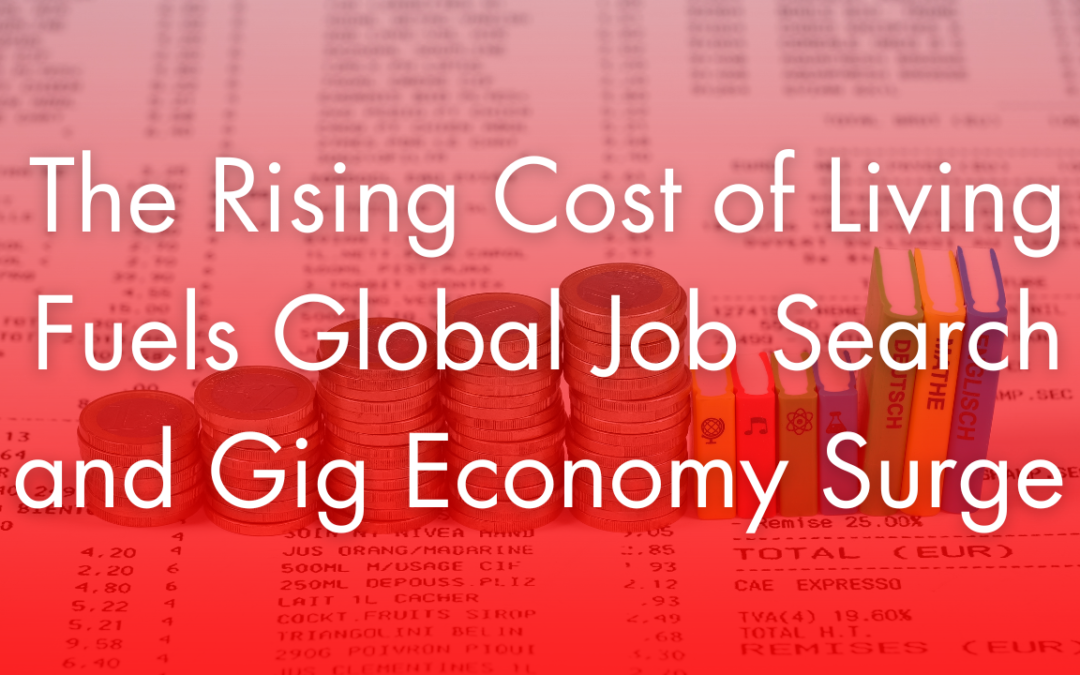The world’s employed population is navigating increasingly turbulent financial waters as the cost of living continues to soar. The recently unveiled findings from the Global Workforce Hopes and Fears Survey conducted by PwC paint a stark picture. Workers worldwide are being pushed to seek higher-paying employment or take on additional jobs to make ends meet. The survey reveals a significant shift in the global job market, with 26% of the workforce contemplating a job change in the next year, a noticeable uptick from the 19% reported in 2022. These revelations are based on insights from nearly 54,000 workers hailing from 46 countries and territories.
Perhaps the most concerning revelation in the survey is the pervasive financial hardship that has gripped the globe in 2023 compared to the preceding year. Increasing numbers of the employed populace find themselves in a daily grind solely to cover their basic expenses, leaving them with meager to no savings for retirement, holidays, or the simple pleasures that underpin a balanced lifestyle. The percentage of workers with scant or zero savings swelled from 37% in 2022 to a staggering 42% in 2023. Simultaneously, the proportion of workers who can afford to save has dwindled to a mere 38%, down from 47% in the previous year.
The stark reality is that households with employed individuals are grappling with the burden of paying their bills, and many are falling short. The survey illuminates a concerning trend, with 14% of such households struggling to pay some or all of their bills each month, a substantial increase from the 10% reported in 2022. Moreover, 4% of the surveyed employed individuals face the grim reality of being unable to pay their bills most of the time, up from 2% in 2022. The cumulative impact is undeniable: a disconcerting 18% of surveyed employees, despite being gainfully employed, are embroiled in financial hardship, with bill payments proving to be an ongoing battle.
It comes as no surprise that certain segments of the workforce are most susceptible to the winds of change. Workers who profess to be overworked, struggling to meet their monthly financial obligations, and members of Generation Z are among those most likely to embark on the quest for new employment opportunities. PwC’s survey highlights that cultivating a sense of purpose, fostering a positive company culture, and embracing inclusivity are pivotal in retaining employees. Worryingly, roughly half of the respondents admitted to not being able to express their true selves in their present workplace.
As the financial squeeze tightens its grip, one in five workers globally has turned to the gig economy, working multiple jobs to supplement their income. The majority, constituting 69%, have embraced this way of life out of sheer necessity. The phenomenon of multiple jobholders is particularly pronounced among Generation Z and ethnic minorities, accounting for 30% and 28% of workers with more than one job, respectively. These secondary jobs predominantly comprise part-time work, followed closely by freelancing.
In a world where the rising cost of living is increasingly pressuring individuals and families, the workforce is left with little choice but to adapt. The search for higher-paying jobs and the embrace of the gig economy have become essential survival strategies. Employers are under the microscope, with a profound need to address overwork and foster inclusive cultures to retain their talent. As the cost of living continues its upward trajectory, individuals worldwide are learning to navigate these uncharted waters, seeking new opportunities and innovative income streams to secure their financial well-being.
